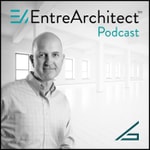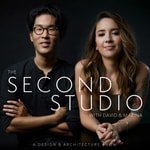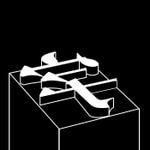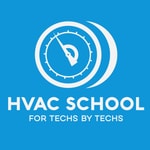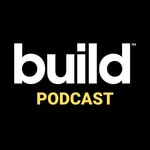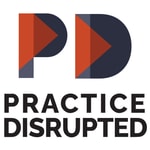The Building Science Podcast – Details, episodes & analysis
Podcast details
Technical and general information from the podcast's RSS feed.
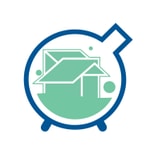
The Building Science Podcast
Positive Energy
Frequency: 1 episode/25d. Total Eps: 147

The Building Science Podcast is a show hosted by MEP engineering firm Positive Energy principal Kristof Irwin. The show covers everything from the basics of building science to adjacent scientific disciplines to more fully understand how the built environment shapes our lives as human beings on planet earth.
Recent rankings
Latest chart positions across Apple Podcasts and Spotify rankings.
Apple Podcasts
🇺🇸 USA - design
26/07/2025#61🇺🇸 USA - design
25/07/2025#81🇺🇸 USA - design
24/07/2025#52🇺🇸 USA - design
23/07/2025#48🇺🇸 USA - design
22/07/2025#86🇺🇸 USA - design
21/07/2025#60🇺🇸 USA - design
20/07/2025#73🇺🇸 USA - design
19/07/2025#56🇺🇸 USA - design
15/07/2025#91🇺🇸 USA - design
14/07/2025#57
Spotify
No recent rankings available
Shared links between episodes and podcasts
Links found in episode descriptions and other podcasts that share them.
See all- http://www.wholefoodsmarket.com/
37 shares
- https://positiveenergy.pro/kristof
35 shares
- https://positiveenergy.pro/m-walker
20 shares
RSS feed quality and score
Technical evaluation of the podcast's RSS feed quality and structure.
See allScore global : 68%
Publication history
Monthly episode publishing history over the past years.
Tools For a Habitable Future
Season 10 · Episode 136
vendredi 16 août 2024 • Duration 01:19:35
The work of the AEC is broader than buildings. On a daily basis we, collectively and individually, make decisions that have broad and lasting impacts on our lives, our health, and our world. These impacts can be either positive or negative; the choice is ours. This is the perspective of Gina Ciganik and her brilliant and motivated team at Habitable.
Armed with powerful minds and compelling data, they are working to help society rethink material supply chains altogether. Formerly the Healthy Building Network, Habitable exists to help people understand that we need to fundamentally shift the materials economy to protect ourselves and our planet's ecosystems. These are also the people who created the Pharos database. Now they are releasing a powerful tool, The Informed Tool, to make it easy to make good decisions for materials using a simple Green, Yellow, Red system. It’s time to start.
If the term materials economy is somehow just a bit bland and doesn’t connect or feel engaging for you, consider these two facts to remind you of what we’re talking about:
1. Microplastics in the ocean: 58% of them are from one material - Paint. And 48% is from paint used in homes and buildings. We know latex gloves are plastic but somehow we forget that latex paint is as well. If we are going to ever get the plastics out of our waterways, oceans and bodies, we have to address this material and the upstream decision making process.
2. Carpeting as single use material: 2 Millions Tons of carpeting are thrown into landfills and incinerators in the US every year. Our national obsession with fuzzy floors uses more plastic than all single use plastic bottles, plastic bags, and plastic straws combined (mic drop).
OK, did those wake you up and help you understand that the decisions we make here in the AEC have implications and impacts far beyond what we normally consider our purview? Join Kristof and Gina in this lively wide ranging discussion as they unpack the work that Habitable is doing.
Gina Ciganik
Gina Ciganik is the CEO of Habitable and has been instrumental in growing and scaling the organization's vision since assuming the role in 2016.
Recognized nationally for her leadership in transforming human and environmental health, Gina’s strategic partnerships and innovative practices have reshaped housing standards across the affordable housing sector. With a proven track record of creating healthier spaces–including the groundbreaking 90-unit apartment building, The Rose–Gina’s leadership drives Habitable’s mission forward. She sees herself as a “dot-connector” and translator who amplifies the organization’s impact, fostering holistic solutions for planetary health. Determined, curious, and joyful, Gina is committed to creating healthier environments for communities worldwide.
Team
Hosted by Kristof Irwin
Edited by Nico Mignardi
Produced by M. Walker
Rethinking The Wood Supply Chain
Season 10 · Episode 134
lundi 29 juillet 2024 • Duration 48:01
How can we build better supply chains for the built world? When it comes to the inconceivably vast amount of wood we use in our buildings, one “simple” way is to use less virgin material and use more wood that would otherwise not make it to market. Instead it would be destined to decompose and emit its carbon into the sky. What if, instead, the forgotten trees were salvaged and turned into valuable, usable lumber?
This is a big idea whose time has come. Still, having a powerful idea is only the first step. Making it happen in the real world is the other side of the story. Starting with a focus on a smarter, more transparent wood supply chain, the ambitious team at Cambium Carbon are making powerful change happen in the human side of the wood ecosystem in the AEC. Their work is a key support for firms committed to sustainability.
Join Kristof in a thoughtful conversation with Ben Christensen to learn more about what Ben and his team are doing to find wood impacted by the four Ds: disease, decay, disaster, and development and keep it out of landfills. Instead of landfills the wood goes back into the built world for generations to come.
The company Living Carbon was mentioned during this episode as an interesting website to check out!
Ben Christensen
Ben, a Forbes 30 Under 30 lister and TedX speaker, is a thought-leader and industry expert. He is the CEO and Co-founder of Cambium, a climate-tech start-up backed by Joe Tsai, Steve Case, and many others. By working with cities to divert wood waste, local manufacturers to create sustainable products, and demand partners for offtake they are creating a new regenerative supply chain for urban wood. Ben loves to share his expertise on topics like circular economies, climate tech, leadership, and building teams. He earned his Masters of Environmental Management from the Yale School of Forestry and Environmental Studies.
Team
Hosted by Kristof Irwin
Edited by Nico Mignardi
Produced by M. Walker
Entropy, Insight and Our Time to Shine
Season 10 · Episode 124
mardi 12 mars 2024 • Duration 01:14:17
Luke Leung
Luke is a LEED (Leadership in Energy and Environmental Design) Fellow; He is also a Centennial Fellow from The Pennsylvania State University Architectural Engineering Department; Board of Directors for USGBC (United State Green Building Council), Illinois; Chairman of the ASHRAE (American Society of Heating, Refrigeration and Air Conditioning) Committee on “Tall Buildings”; Chairman of the Building Pressure Committee, Chicago Committee on High Rise Buildings; Sustainable Committee with Council on Tall Buildings and Urban Habitat; Part Time Professor at IIT; Member of the Chicago Sister Cities Program with China; MBA from University of Chicago, MS and BAE from Architectural Engineering at Penn State University.
Luke Leung is the Director of the Sustainability Engineering Studio for Skidmore, Owings and Merrill LLP. He is the incoming Chair of ASHRAE Environmental Health Committee; Team leader for ASHRAE Epidemic Task Force, Commercial Buildings; Group Leader for LCA and Embodied Carbon, ASHRAE Decarbonization Task Force; National Renewable Energy Laboratory IN2 Incubator Industry Advisor; BOMA Toronto, Health Committee Co-Chair. His work includes Burj Khalifa, the world’s current tallest man-made structure; Multiple times “Excellence in Engineering” award from the American Society of Heating, Refrigeration and Air Conditioning Engineers (ASHRAE); Selected projects also include Pertamina Tower (Net Zero Supertall), General Motors Global Headquarters, XiongAn Net Zero Development, Beijing Finance Street, Embassy of Ottawa in Canada, Embassy in Beijing, Lakeside – 55 million sqft low energy development, a LEED Platinum building with the first large scale horizontal wind turbine in the city of Chicago; etc., and has served as a member of the editorial team for the CTBUH guide Natural Ventilation in High-Rise Office Buildings, ASHRAE “Design Guide for Tall, Supertall, Megatall Building Systems”, among other publications.
Team
Hosted by Kristof Irwin
Produced by M. Walker
Edited by Nico Mignardi
Stucco - (Much) More Than Meets The Eye
Season 3 · Episode 36
vendredi 6 octobre 2017 • Duration 58:47
Special Edition - Just Released. Listen and learn why you don't want to miss this event! Coming up next Friday 10/13/2017 here in Austin.
Join Kristof Irwin and guest experts Matt Carlton and Brian Roeder for lively discussion on the surprisingly rich topic of stucco cladding systems. You'll never look at a stucco wall the same way again.
Special thanks to UltraAire for their generous support.
Symposium DetailsHosted by: AIA BEC: Austin & RCI, Central Texas
Date & Time: Friday, October 13th, 8:30am-5:30am, registration opens at 8:00am
Location: JJ Pickle Research Center, Commons Conference Center, 10100 Burnet Rd, Austin, TX 78758
Price: Early Bird (unitl 9/15) $150/person, General Admittance (9/16-10/12) $190/person, Day Of (10/13) $225
CEUs: 6.5 LU AIA HSW Credits
Intelligent Environments: Building Science & Predictive Analytics Collide
Season 3 · Episode 35
vendredi 18 août 2017 • Duration 45:43
Join Kristof for a thought-provoking conversation with Dr. Zoltan Nagy on intelligent environments and how building science principles are guiding predictive analytics to shape the future of building and home operations. As more intelligent buildings emerge, occupant-centric solutions to IAQ issues, mechanical issues, and energy issues can be addressed.
The Intelligent Environments Laboratory (IEL), led by Prof. Zoltán Nagy, is an interdisciplinary research group within the Building Energy & Environments (BEE) Program of the Department of Civil, Architectural and Environmental Engineering (CAEE) in the Cockrell School of Engineering of the University of Texas at Austin.
The aim of their research is to rethink the built environment and define Smart Buildings and Cities as spaces that adapt to their occupants and reduce their energy consumption.
Hitting The Reset Button
Season 3 · Episode 34
lundi 7 août 2017 • Duration 45:04
It's time to find the reset button. Time to re-examine our view of what we know about delivering conditioned space to our clients, to ourselves. The upside potential in buildings is staggering. From some vantage points, it's astounding and inexplicable why the very places we live continue to be held in a laggard state of performance relative to what's possible. Our industry transition is held captive to an outdated vision. Without a proper vision, our mission, strategy and tactics are ineffective.
We are all front line advocates, operating within our spheres of influence. What creates effectiveness is knowing why we are engaged in a particular next action and how that relates to moving the industry and the market forward. Why comes first, then what. Many of us can't effectively advocate for best practices in homes/buildings- not because we don't know what to do. Rather it's because we don't know why we need to do what we want to do. If we don't know why then we can't effectively advocate for change with our project teams and the pent-up transition will continue to move forward at a languished pace; albeit inexorably. In this episode Kristof shares some ideas to help us find our reset buttons, or at least pose the idea that hitting reset is worthwhile.
Everything You Never Knew About Earthen Construction
Season 3 · Episode 33
mardi 1 août 2017 • Duration 51:44
Join us for a fascinating conversation with Stephen Colley on earthen construction.
Stephen currently practices architecture and runs his own architecture firm and is a long-time practitioner of green design and sustainable living. From 2010-2012 he served as the Program Manager in Green Initiatives for Palo Alto College in San Antonio developing training courses related to sustainable design and construction.
Stephen also participated in the Alamo Colleges Chancellor’s Council on Sustainability helping to write a new more sustainable policy for the Alamo College District. The new policy was approved by the Board of Alamo Colleges in August of 2012. In his previous position as the Green Building Coordinator for Build San Antonio Green, he developed the criteria for San Antonio’s residential green building program, Build San Antonio Green, recognized by the National Association of Homebuilders as the Green Building Program of the year in 2009, and served on the Mayor’s (San Antonio, Texas) task force on Sustainable Policy as the City charted a significant shift away from conventional building, development, and transportation policy. Stephen was chosen by the National Association of Home Builders as one of the original stakeholders to write the Green Policy for the organization as basis for their nation-wide residential green building program, National Green Building Standard™.
In 2005, he co-authored the Texas Manual on Rainwater Harvesting for the Texas Water Development Board (3rd edition). The Manual is widely distributed and used as a reference for potable and non-potable rainwater harvesting system publications. He is also the former Chair of the San Antonio Chapter of the American Institute of Architects Committee on the Environment, a LEED® Accredited Professional, and President of Earthen Construction Initiative, a non-profit organization to advance and promote earthen construction.
IEQ Series - Hearing Architecture & ISQ
Season 3 · Episode 32
lundi 19 juin 2017 • Duration 54:56
Noise can have an adverse impact on people in offices, classrooms, hospitals and other commercial buildings (European Agency for Safety & Health at Work, 2005), interfering with their daily activities at work or school and at home. People’s performance levels and ability to concentrate can be negatively affected by noise and it can make it harder for them to share knowledge with one another.Join Kristof in this continuation of our IEQ series as he discusses acoustics and sound quality across the architectural spectrum with Keith Simon and John Poesnecker.
Be sure to check out this wonderful TED Talk by David Byrne on sound and architecture.
Efficiency Is Not Enough - The Science Of Sustainability
Season 3 · Episode 31
mardi 23 mai 2017 • Duration 57:17
How good should the building envelope be? How much energy should a building use? Finding answers require putting the building in context with the complex, interconnected, global networks of materials and resource flows in which they exist. Join Kristof for a wide ranging and slightly geeky discussion w Dr William Braham on systems ecology, exergy, emergy, and why a climax forest is a model for power and efficiency.
Dr. William W. Braham FAIA is a Professor of Architecture at the University of Pennsylvania, where he served as Chair from 2008 to 2011 and is currently Director of the Master of Environmental Building Design and Director of the TC Chan Center for Building Simulation and Energy Studies. He received an engineering degree from Princeton University and an M. Arch. and Ph.D. Arch. from the University of Pennsylvania, where he has taught since 1988. At Penn, he teaches graduate courses on ecology, technology, and design. At the Chan Center, his most recent projects have been the Sustainability Plan, Carbon Footprint, and Carbon Reduction Action Plan for the University of Pennsylvania.
See more of Dr. Braham's work on his website.
Ducts & Sealing & Health, Oh My!
Season 3 · Episode 30
mardi 25 avril 2017 • Duration 01:06:43
In this episode, Kristof interviews Sean and Ian Harris, the owners of a duct sealing company called Aeroseal of Austin in Austin, TX. You'll hear discussion on why duct sealing is such a crucial component of healthy delivered air and energy performance of mechanical systems.
Sean Harris has been developing his interest in residential home construction since participating in a remodel project, certified by Austin Energy’s Green Building Program in 2005. With a degree in business administration, Sean combines his interest in green building and knowledge of business systems. Sean oversees the operations of Positive Energy and including product development, quality control, staffing, and marketing/sales. He is also a certified RESNET energy rater and conducts home performance inspections, energy code tests, ECADS, and HERS ratings.
